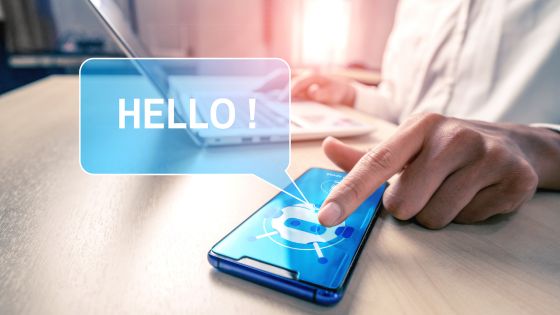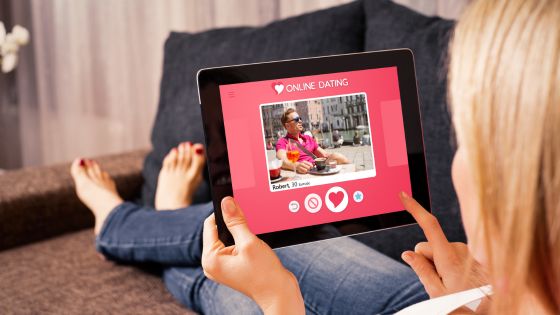Online dating always walks around problems. People often face ghosting and harassment while talking online. But with AI, you can find more reliable online dates.


AI-powered, new dating apps are trying to make your date easier by finding the right match. The bot will do many things for you like making small conversation or finding you someone attractive. This app will help people to date. The interface of the new AI dating app is different from the current left-or-right apps like Tinder. These apps are using algorithms to show the results.
The new AI dating app is competing for a good share in the dating app market. The Bloomberg team has tested a few AI powered dating apps to inspect the features and functionality.
Teaser Al
Small talk, according to Daniel Liss, is the most challenging aspect of courting. Liss, a digital entrepreneur whose previous enterprises include the photo sharing website Dispo, launched Teaser Al in June, marketing it as the app that leads to “less ghosting, more matches.”
Nobody will be neglected on Teaser Al; everyone will receive at least a bot response.
The users of the app program the bot to sound like them by conversing with it and sharing their speech patterns. The bots interact with potential partners or their bots as a “teaser.” If everything goes as planned, the teaser bot notifies its human creator, who can then determine whether to set up a human-to-human date.
Liss claims that by skipping the short talk phase, users can get to more substantive conversations more quickly. A test of Teaser’s chatbot reveals that Al takes an unwelcome amount of creative license with fundamental facts. Our correspondent trained the chatbot by providing biographical information; she is a Los Angeles-based political science student. Nonetheless, while conversing with potential suitors, the chatbot fabricated a friendship with Andy Weir, author of The Martian, and a degree from New York University.
According to Liss, the chatbot serves as an icebreaker and provides fundamental information, such as whether a user has a dog. After training, the user-created chatbots are “pretty close to something that sounds like you,” he said, but its accuracy cannot be guaranteed.
David Evan Harris, a lecturer on Al ethics at the Haas School of Business at the University of California, Berkeley, expressed doubt that an Al could construct a “compelling version” of a user.
Teaser Al
Cost: Free for five daily curated matches, $39.99 per month for a premium subscription that enables more matches and provides users with feedback on why their profiles were overlooked. Only available in beta.


Blush
Blush Al, an app developed by the parent company of Replika, a chatbot developer, is marketed as a “Al-powered dating simulator” in which users form relationships with a chatbot. Eugenia Kuyda, founder of Replika and Blush, explained that the app seeks to foster emotional connections to “help people feel better” and boost their self-esteem.
When the reporters tested Blush, the Al-generated characters sent awkward photos of a man reading a phony newspaper while posing in a serious manner. The chatbot began with a flirtatious question (“What are your biggest turn ons?”).
Undoubtedly, Al requires additional training in flirting.
Blush AI
Cost: Free to chat with limited matches. $14.99 per month for access to unlimited characters. The option to go on role-play dates is available in a premium subscription.
Iris
Iris Dating enables users to train an Al to select partners that it predicts they will find biologically attractive by rating a library of facial images.
“It’s all about the face,” said the chief executive officer. The Al processes user preferences for details such as the distance between the eyes, because “the magic is gone” with even a millimeter adjustment in position.
Khalatian emphasized that the success of the program, which has more than one million users, includes a Florida couple who are now married and expecting their first child.
But Bloomberg’s evaluators were unable to use the application. Even after training, none of our evaluators were matched with other users who satisfied their attraction requirements. According to Khalatian, these matches may have been presented because other users find us attractive. In September, Iris will distribute an update to address this issue, he said.
Iris Dating
Cost: Free, with the option to upgrade to a premium subscription for $5.99 per month that allows users to view everyone who has “liked” them.
Breakup Friend
If any of the matches fail, an Al-powered application can alleviate the emotional anguish. The app, created by Oliver Mathias after his own difficult separation, provides emotional support via an AI chatbot.
According to Mathias, this app utilizes the foundational model of Open Al’s GPT 3.5, which has been fine-tuned to serve as a self-help course, becoming a friend who guides users through their emotions and away from unhealthy beliefs. According to him, he has even seen Reddit users state, “Breakup Buddy is better than my therapist.”
He stated that AI dating applications are “merely preying on loneliness rather than teaching users how to be okay with themselves.” “Breakup Buddy is available 24 hours a day, seven days a week to reassure you that there is nothing wrong with you and to teach you what to look for in a future partner.”
Breakup Friend
The monthly cost is $18, or $12 on a six-month plan.
Use Cautiously
According to Judith Donath, a fellow at Harvard’s Berkman Klein Center, even if an Al can spout responses in a human-like manner, it lacks a mind or emotion. This can make interactions with algorithms inherently deceptive and potentially harmful.
People’s increasing reliance on an app’s functionality would be a “sign of success” for a company, but it would also contribute to “loosening the ties between people and our needs for relationships,” according to Donath.
Ethical experts warned that the data used to train A.I. systems may reflect human bias, and that chatbots may adopt problematic opinions on behalf of the users they claim to represent.
According to Berkeley’s Harris, the success of these dating applications also depends on the emotional vulnerability of their users. He explained that these apps could inadvertently cause distress if users become emotionally dependent on an Al whose algorithm is subsequently altered.
Concerns that the public is experiencing an epidemic of loneliness are valid, according to Donath. The applications, however, may become “probably more of a problem than a solution.”
























